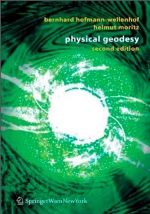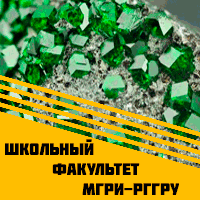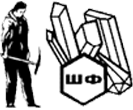Добрый день, Коллеги. Важное сообщение, просьба принять участие. Музей Ферсмана ищет помощь для реставрационных работ в помещении. Подробности по ссылке
Physical Geodesy / Физическая геодезия
Almost the period of one generation has passed since 1967, the year of the first release of Physical Geodesy by Weikko A. Heiskanen and Helmut Moritz. Soon this book became a bestseller. Today, when studying publications dealing with physical geodesy, not surprisingly the book is still frequently quoted. Have the clocks been stopped since then? Not at all, time has flown as fast as usual or maybe even faster - at least in someone's imagination. However, excellent quality is correlated with a long life expectation. This is the reason why "the book" still plays an important role in geodetic science and beyond.
In the last decades, nevertheless, geodesy has certainly continually developed further - on the one hand by new computational methods and ideas and on the other hand by modern measurement techniques. This is where the story of this book starts.
Several years ago, I tried to convince Helmut Moritz on the necessity of a new edition of Physical Geodesy. Even if I encountered some interest, I did not manage to completely succeed. "Steter Tropfen hohlt den Stein" (persistent drops hollow out the stone), I thought and started to repeat my request regularly. The reason for my somehow obstinacy originated from the past. In 1993, I got the chance to support Helmut Moritz in writing the book entitled Geometry, Relativity, and Geodesy. For me, this was a tremendously exciting time where we developed a great cooperation in any respect. Immediately after this experience, I manifested my desire of another chance for a cooperation. In these days, the idea of a new edition of Physical Geodesy matured.
Finally, the persistent drops succeeded. I cannot tell you the Why and the When; suddenly we had a contract with the Springer Publishing Company. To me it seemed as if the wheel of time had been turned back - thank you, Helmut!
Many persons deserve credit and thanks. Prof. Dr. Klaus-Peter Schwarz, retired from the Department of Geomatics Engineering of the University of Calgary, strongly influenced the balance between keeping, eliminating, updating, and adding topics.
Prof. Dr. Herbert Lichtenegger, retired from the Institute of Navigation and Satellite Geodesy of the Graz University of Technology, was a reviewer of the book. He has critically read and corrected the full volume. His many suggestions and improvements, critical remarks and proposals are gratefully acknowledged.




